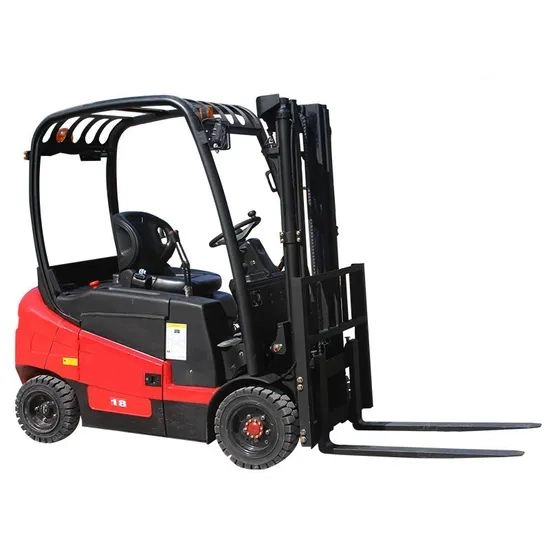The core advantages of lithium-ion battery electric forklifts lie in four key dimensions: operational efficiency, long-term cost, safety experience, and scenario adaptability. Compared with traditional lead-acid battery forklifts, they are better suited to the high-frequency and high-efficiency operational needs of modern warehousing and logistics.

1. Significantly Improved Operational Efficiency
The efficiency advantage directly addresses the core pain point of "work stoppage waiting for charging," making the operation process smoother:- Fast charging speed: Adopting fast-charging technology, it can be fully charged in 1-3 hours, which is 3-5 times faster than lead-acid batteries (which take 8-10 hours). No long waiting time for recharging is needed during multi-shift operations.
- More stable battery life: The energy density is 30%-50% higher than that of lead-acid batteries, resulting in a longer actual range under the same capacity. There is no "sudden voltage drop" during the discharge process, ensuring stable power output throughout and avoiding weak performance in the later stage of operation.
- More flexible recharging: Supports "charging while in use" without waiting for the battery to be fully discharged (lead-acid batteries require deep discharge to avoid memory effect). Recharging can be done during fragmented time periods such as lunch breaks and shift changes, without delaying the operation progress.
2. Lower Long-Term Comprehensive Cost
Although the initial purchase cost is higher, the total cost can be reduced through "less maintenance and fewer replacements" during long-term use:- Longer service life: The cycle life reaches 2000-3000 times, which is 2-3 times that of lead-acid batteries (500-800 times). It can operate stably for 5-8 years under normal use, while lead-acid batteries need to be replaced every 1.5-2 years.
- Extremely low maintenance cost: Unlike lead-acid batteries that require regular water refilling and electrolyte concentration adjustment, only weekly cleaning of the battery interface is needed. There are no problems of liquid leakage and corrosion, reducing maintenance downtime caused by battery failures.
- Less energy consumption loss: The charge-discharge conversion efficiency of lithium-ion batteries exceeds 90% (lead-acid batteries only have 70%-80%), and they are lighter in weight (30%-50% lighter than lead-acid batteries of the same capacity), resulting in lower energy consumption during forklift operation and further extending the battery life.
3. Better Safety and User Experience
The characteristics of lithium-ion batteries make operation safer and driving more convenient:- Comprehensive safety protection: It has five built-in protection functions, including over-charging, over-discharging, over-current, short-circuit, and temperature control, avoiding risks such as thermal runaway and electric leakage from the source. The battery pack shell is made of flame-retardant and impact-resistant materials, which are not easy to be damaged in case of collision.
- More convenient use: The light weight of the battery reduces the forklift's own load, making steering and operation easier. There is no acid mist or peculiar smell like that of lead-acid batteries, creating a more environmentally friendly working environment and protecting the health of operators.
- Lower failure risk: The consistency of battery cells is good, and the probability of bulging and liquid leakage during long-term use is much lower than that of lead-acid batteries. Some high-end models are equipped with real-time battery status monitoring function to warn of failures in advance and reduce sudden shutdowns.
4. Wider Scenario Adaptability
It can meet the operational needs of different working conditions and has a wider application range than lead-acid battery forklifts:- Adaptable to multi-shift / high-frequency operations: The combination of fast charging and long battery life is suitable for logistics parks and ports with 24-hour continuous operations, without the need for spare battery replacement.
- Adaptable to special environments: The built-in temperature control system enables stable operation in environments ranging from -20℃ (cold storage) to 50℃ (high-temperature workshops). There is no risk of electrolyte leakage, making it suitable for industries with high environmental cleanliness requirements such as food and pharmaceuticals.
- Adaptable to space-constrained scenarios: The battery pack has a more compact design, which can optimize the forklift layout and make the vehicle body smaller, suitable for flexible operations in narrow warehouses and workshops.



